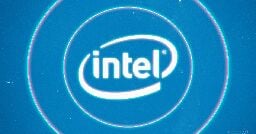Intel is laying off over 15,000 employees and will stop ‘non-essential work’



theverge.com
So they got all that money from Uncle Sam's CHIPS Act only to lay off 10,000 employees and make themselves "lean". Govt funded unemployment.
You are viewing a single comment
Not sure a short summary will cut it.
They had no competition for a long period and ended up with an accountant CEO that caused their R&D to stagnate massively. They had a ton of struggling and failing to deliver all in most areas, and they wombled about releasing CPU generations with ~4% performance uplifts, probably saving a few bucks in the process.
AMD turned back up again with Ryzen and Epyc models that were pretty good and and an impressive pace of improvement ( like ~14% generational uplifts ) that caused them such a fright that they figured out they had to ditch the accountant.
Pat Gelsinger was asked to step up as CEO and fix that mess. They axed some obvious defective folks in their structure and rushed about to release 12th generation products with decent gains by cranking the power levels of the CPUs to absurd levels, this was risky and it kind of looks like they are being bit with it now.
Server CPU sales are way down because they are just plain uncompetitive. They have missed out on the chunk of money they could have got from the AI bubble because they never had a good GPU architecture they could leverage over to use. They have been shutting down unprofitable and troublesome divisions like the Optane storage and NUC divisions to try and save money, but they are in a bad way.
The class actions mentioned elsewhere in the thread are probably coming because the rush to make incremental improvements to 13th generation and 14th generation CPU's resulted in issues with power levels and other problems that seem to be causing those CPU's to crash and sometimes fail altogether.
What is it with accountants being chosen as CEO? Like if you were a competent accountant, you should be CFO, and the CEO is someone who knows what the fuck the company sells and how it profits, which I can guarantee you has never been a competent accountant.
It's because the big investors only give a fuck about number go up. Accountants show number go up. All current large investors also seem to have a complete inability to look more than 1-2 quarters in advance, at most. So if number go down, instead must force change to make number go up, but again only 1-2 quarters to make it happen. If number stay down, abandon and go elsewhere.
Institutional investors, the ones with billions in assets controlled, and the real power in this world, don't give a shit if the company is actually successful, or about sustainability, or anything other than continuous profits at any expense. And that's how they perceive the accountants.
Number not going up now.
Number not go up?
Abandon ship to the next company where accountant promises number go up.
It’s a little like the sociopath hospital boards, having more billing staff than doctors and nurses. Making a massive mistake for quick profit and leaving it for the next guy to cleanup lawsuits. A little like robocall centers, okay with fleecing the poor as long as they only have to pay roughly 20% in damages, close shop and create a new call center all over again and rinse and repeat.
I always like this answer by Steve Jobs on the topic (here it's xerox, but this also fits Intel pretty well).
This video is perfectly applicable, the rot that sets in in a large company when you have no competition to counteract it is exactly what has happened here.
Don't forget the potential oxidation issues.
There's probably a huge story behind why Intel replaced their fab chief just days after it was revealed that he okayed sending out oxidized chips.
Yeah /u/deadbeef@lemmy.nz kind of understated the problem. They were seeing insane failure rates in data centers like 50%. At this point, any 13th or 14th gen CPU that has experienced any crash or instability should be considered faulty unless you know the cause of the crash is from something else. This isn't just me saying this, mainstream outlets like Gamers Nexus are saying it.
If you're a consumer and have one of those CPUs a replacement is probably in your future. And I wonder if Intel even has stock to replace that many at once....
I can't think of anything like this ever happening on this scale before in computing history.
Lest we forget
https://en.wikipedia.org/wiki/Pentium_FDIV_bug
A case study for the generations